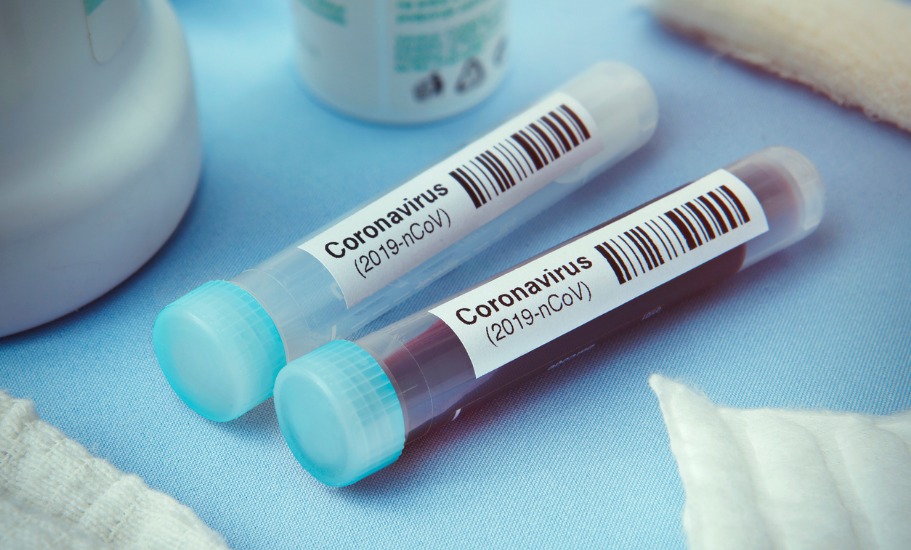
Centre constitutes EG6 committee to revamp fight against COVID-19
Within six days since its formation, an Empowered Committee of senior bureaucrats has held six meetings with international organisations, over 40 NGOs and several industrial bodies, addressing the issues pertaining to the identification of problems, effective solutions, and formulation of plans in the fight against pandemic coronavirus.

Within six days since its formation, an Empowered Committee of senior bureaucrats has held six meetings with international organisations, over 40 NGOs and several industrial bodies, addressing the issues pertaining to the identification of problems, effective solutions, and formulation of plans in the fight against pandemic coronavirus.
The group constituted by the Centre is chaired by Amitabh Kant, CEO, NITI Aayog to monitor all aspects of the pandemic.
The Empowered Group number six has been constituted to address the issues and seek support and technology-based solutions with groups of stakeholders – the UN agencies, World Bank, Asian Development Bank, Civil Society Organisations and development partners and Industry associations – CII, FICCI, ASSOCHAM, NASSCOM.
As many as eight Start-Ups working in innovative health care solutions, 12 top industry leaders from CII, six CEOs from FICCI industry partners, 14 CEOs of top tech-based companies from NASSCOM, participated and deliberated on all issues ranging of estimation needs for PPE, ventilators and medical equipment, retrofitting domestic production lines to meet demand, supply chain management issues, innovative technology-led solutions, issues of certification, GST, import duties on components, issues of procurement, training, post-lock-down operating procedures, etc.
The start-ups, namely, AgVa, Biodesign Innovation Lab, Kaeaenaat, Qure AIDrona Maps, mFine, MicroGo, Staqu, working on innovative ventilator designs, testing tools, and tracking solutions have been contacted separately to understand their scale and possible contributions.
Related news: Extending lockdown not a good idea, may invite compliance issues
Six meetings were conducted between March 30 and April 3 with industry associations, IOs, and CSOs about their contribution to the response, their plans for the coming weeks, and the issues they are facing, and their expectations from the government.
All three groups have proactively pointed out the areas where they need support which the government is following up. They have also been put in touch with other EGs for faster and more effective response and coordination. All minutes of the six meetings of the EG 6 have been issued.
EG6 had detailed meetings with UN Resident Coordinator for India, and country heads of WHO, UNICEF, UNFPA, UNDP, ILO, UN Women, UN-Habitat, FAO, World Bank, and Asian Development Bank.
Following the discussions on these IO’s providing technical support in monitoring and surveillance systems, strengthening health and nutritional services, capacity building, financial resources, and critical equipment support, etc, the UN in India has built a Joint Programme Response Plan and submitted to NITI Aayog, defining their clear activities and deliverables in different sectors and States, where they are partnering with Union Ministries and State Governments.
EG6 conducted detailed deliberations with 40 plus prominent Civil Society Organisations and NGOs working in different parts of the country and with different communities.
Several challenges and issues raised by these CSOs were addressed by the EG6 to facilitate their working in the field during this crisis.
CEO NITI Aayog has written to over 92000 NGOs/CSOs registered on the Darpan portal of NITI Aayog, appealing them to assist the government in identifying hotspots and deputing volunteers and caregivers to deliver services to the elderly, persons with disabilities, children, transgender persons, and other vulnerable groups; to create awareness about prevention, social distancing, isolation, and combating stigma; to provide shelter to homeless, daily wage workers, and urban poor families; set up community kitchens for migrants; services.
Related news: Cluster-level containment is new strategy to quell COVID-19
Further, the CEO has written to all Chief Secretaries urging them to instruct the local administration at the district level to utilise the physical and human resources made available by NGOs and CSOs.

